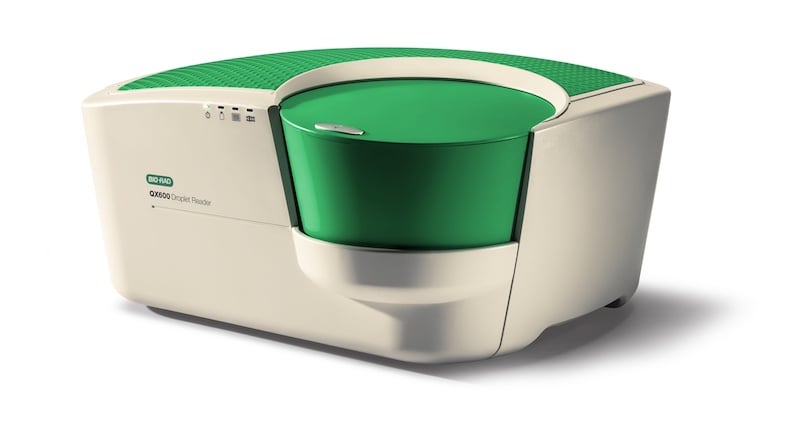One-sentence summary:
Biodesix and Bio-Rad contributed to new findings from the ctMoniTR Project showing that changes in circulating tumor DNA (ctDNA) are strongly associated with treatment outcomes, offering promise for its use in cancer care and therapeutic development.
Three brief takeaways:
- The ctMoniTR Project’s second phase confirmed ctDNA changes predict treatment outcomes across various solid tumors and therapies.
- Biodesix used Bio-Rad’s Droplet Digital PCR technology to detect ctDNA, highlighting its utility in clinical research.
- Biodesix is also advancing ctDNA and proteomics to detect molecular residual disease (MRD), with updates coming at AACR 2025.
Biodesix, Inc., a diagnostics solutions company, and Bio-Rad Laboratories, a global provider in life science research and diagnostics products, contributed to new research findings from Friends of Cancer Research’s ctMoniTR Project, recently published in Clinical Cancer Research (CCR). The findings demonstrate a strong association between changes in levels of circulating tumor DNA (ctDNA) and treatment outcomes, offering the potential for integration of ctDNA analysis in therapeutic development programs, and clinical cancer care.
ctMoniTR Designed to Predict Treatment Outcomes
The ctMoniTR Project (ctDNA to Monitor Treatment Response) was designed to determine whether changes in levels of ctDNA predict treatment outcomes for patients. Results from the first phase of the project demonstrated a strong link between changes in ctDNA and overall survival in patients with aNSCLC treated with immune checkpoint inhibitors (published in the Journal of Clinical Oncology). The new data, from the second phase of ctMoniTR, expands the analysis to additional solid tumor types and treatment categories, including patients treated with tyrosine kinase inhibitors.
Led by Friends, collaborators included Biodesix alongside organizations from industry, government, academia, and advocacy groups. Biodesix contributed data generated using Bio-Rad Droplet Digital PCR (ddPCR) * technology to detect ctDNA from patient samples.
“Biodesix is proud to be a partner on this important project, which has the potential to support a transformation of therapeutic development and clinical cancer care,” says Gary Pestano, PhD, chief development officer at Biodesix. “The ctMoniTR Project is aligned with the mission and vision of Biodesix Development Services, as we strive to challenge the science and solutions of today, in order to evolve and adapt clinical decision-making to improve patient care and outcomes.”
“We are very pleased that Droplet Digital PCR (ddPCR) was selected for use within this study,” says Steve Kulisch, vice president Product Management, Digital Biology Group, Bio-Rad Laboratories. “These collaborations and research programs are vital as we work towards establishing novel methods for molecular residual disease monitoring in oncology, supporting the advancement of scientific research and ultimately healthcare.”
Exploring Means to Detect MRD
Beyond this specific research project, Biodesix offers ctDNA testing, using ddPCR technology, as part of its Development Services portfolio and is also exploring ctDNA in combination with proteomics to detect molecular residual disease (MRD). The latest advancements in this application will be presented at the 2025 American Association for Cancer Research (AACR) Annual Meeting.
Featured Image: Biodesix contributed data to the Friends of Cancer Research’s ctMoniTR Project generated using Bio-Rad Droplet Digital PCR (ddPCR) technology (shown here) to detect ctDNA from patient samples. Image: Bio-Rad
*Droplet Digital and ddPCR are trademarks of Bio-Rad Laboratories, Inc.



